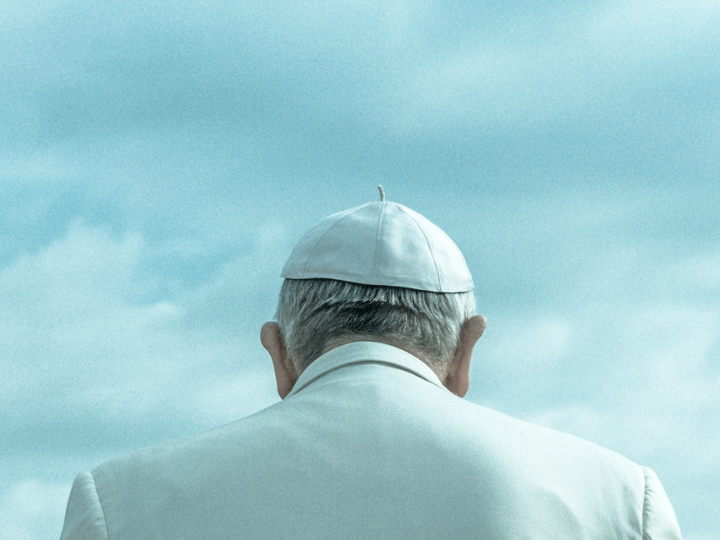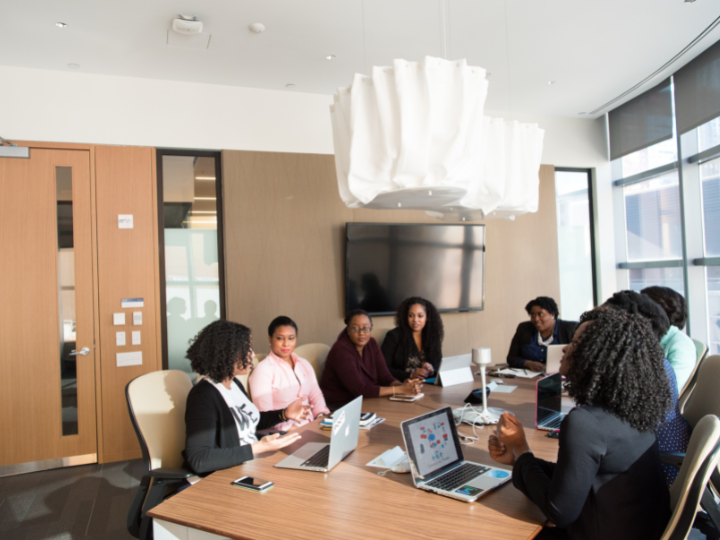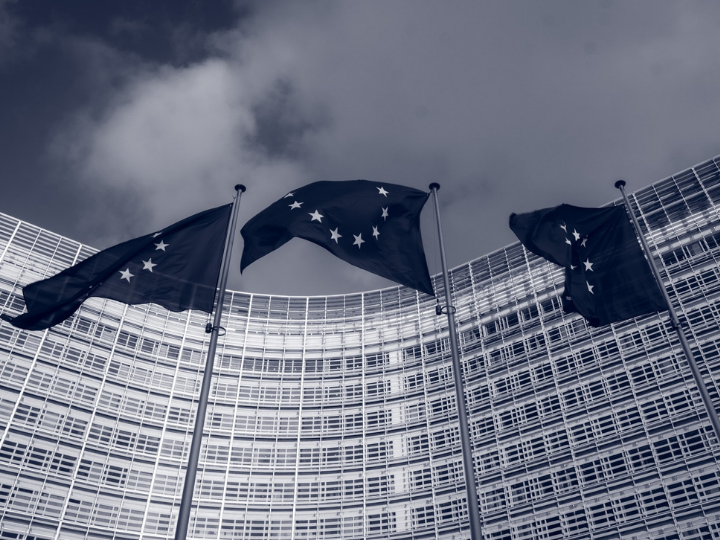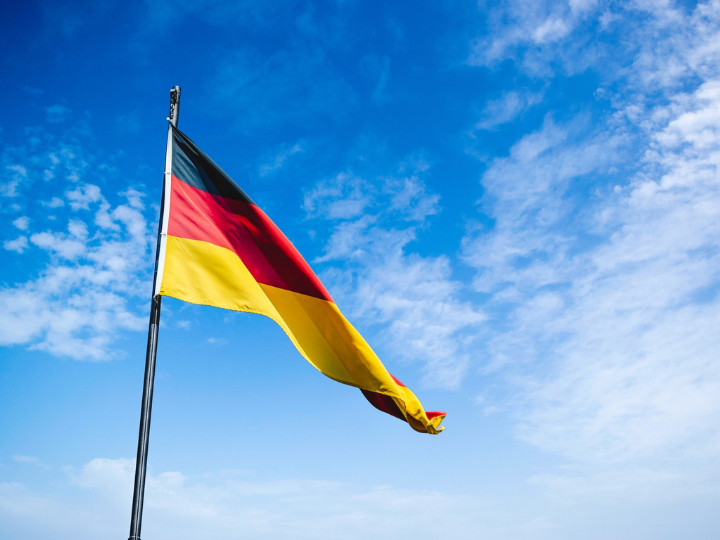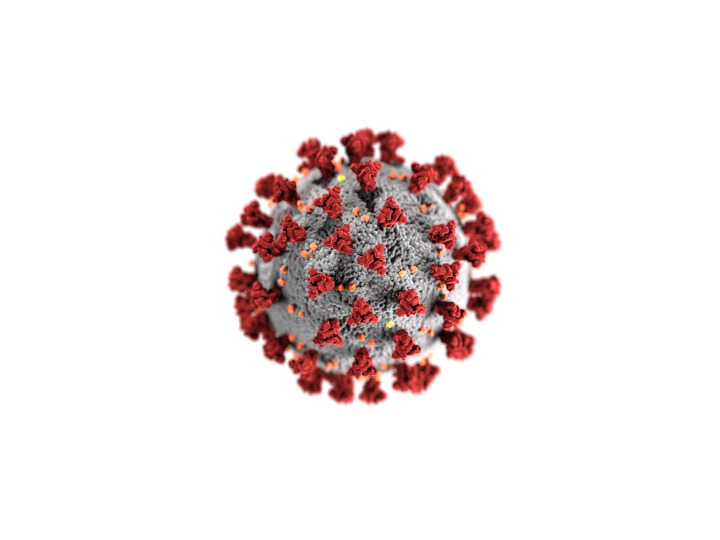|
|
|
|
|
Home |
|
|
|
|
 |
|
|
|
|
|
Se non si visualizza correttamente questa e-mail cliccare
qui |
|
 |
|
|
|
|
|
 |
Servizio stampa
Parlamento europeo
Ufficio di collegamento in Italia
|
|
|
|
|
|
Durante la cerimonia svoltasi il 15
dicembre Daria Navalnaya, figlia di
Alexei Navalny, ha ricevuto il premio
Sacharov del Parlamento europeo a nome
del padre attualmente detenuto in
Russia. |
|
Alexei Navalny sta attualmente scontando
una pena detentiva in una colonia di
lavori forzati in Russia. L'attivista
russo, noto per la sua lotta alla
corruzione e alle violazioni dei diritti
umani da parte del Cremlino, da oltre un
decennio è la principale figura
dell'opposizione nel paese.
Il presidente del Parlamento David
Sassoli, nel suo discorso introduttivo
ha elogiato il coraggio di Navalny: " È
stato minacciato, torturato, avvelenato,
arrestato, incarcerato, ma non sono
riusciti a farlo smettere di parlare...
Come disse una volta lui stesso, la
corruzione prospera dove non c'è il
rispetto per i diritti umani, e credo
che avesse ragione. "La lotta alla
corruzione è anche una lotta per il
rispetto dei diritti umani universali. È
senza dubbio una lotta per la dignità
umana, per il buon governo e per lo
Stato di diritto", ha affermato Sassoli,
chiedendone la liberazione immediata e
incondizionata.
Accettando il premio a nome di suo
padre, Daria Navalnaya ha criticato
coloro che si sforzano nel tentativo di
placare i dittatori nell'interesse del
pragmatismo, ed ha insistito sul fatto
che l'Europa rimanga fedele ai suoi
ideali: “Quando ho scritto a mio padre
per chiedergli: dal tuo punto di vista,
cosa vuoi che dica esattamente nel
discorso? lui mi ha risposto: digli che
nessuno deve azzardarsi ad equiparare la
Russia al regime di Putin. La Russia fa
parte dell'Europa e ci sforziamo di
diventarne parte. Ma vogliamo anche che
l'Europa si sforzi di rimanere fedele a
se stessa, a quelle idee straordinarie
che ne costituiscono il fulcro. Ci
impegniamo per un'Europa delle idee, per
la celebrazione dei diritti umani, per
la democrazia e l'integrità”.
Alla cerimonia di Strasburgo erano
presenti anche Leonid Volkov,
consigliere politico di Navalny, e
l'addetta stampa Kira Yarmysh.
Le altre finaliste
del Premio Sacharov del Parlamento nel
2021 sono state le donne
afghane per la loro lotta in difesa dei
diritti delle donne nel loro paese e la
politica boliviana Jeanine Áñez.
A proposito di Alexei Navalny
Il 20 ottobre il presidente Sassoli ha
annunciato che il Premio Sacharov per la
libertà di pensiero 2021 sarebbe stato
assegnato al politico dell'opposizione e
attivista anticorruzione russo Alexei
Navalny, a seguito della decisione
della Conferenza dei Presidenti del
Parlamento europeo, composta
dal Presidente stesso insieme ai leader
dei gruppi politici in Parlamento.
Navalny è salito agli onori delle
cronache, per aver organizzato
manifestazioni contro Putin e il suo
governo, per essersi candidato alle
elezioni e per aver sostenuto riforme
anticorruzione.
Tuttavia, nell'agosto 2020, Navalny
venne avvelenato e fu costretto a
trascorrere alcuni mesi in convalescenza
a Berlino. Al suo ritorno a Mosca nel
gennaio 2021, venne arrestato e
attualmente sta ancora scontando una
condanna a tre anni e mezzo di carcere.
Alla fine di marzo Navalny ha iniziato
un lungo sciopero della fame, per
protestare contro la mancanza di cure
mediche.
Nel giugno 2021, un tribunale russo ha
bollato la
Fondazione anticorruzione di
Alexei Navalny ed i suoi uffici
regionali come "gruppi estremisti".
Accedi al video: Premio Sacharov 2021 –
Alexei Navalny
In una risoluzione
adottata nel gennaio 2021, i
deputati hanno chiesto il rilascio
immediato e incondizionato di Alexei
Nalvany e di tutti i detenuti dopo aver
protestato per il loro rilascio e dopo
aver esortato i paesi dell'UE a
inasprire in modo significativo le
sanzioni contro la Russia. Il Parlamento
è tornato a ribadire
la sua condanna nell'aprile 2021.
Premio Sacharov del Parlamento europeo
Il Premio Sacharov per la libertà di
pensiero viene assegnato ogni anno dal
Parlamento europeo. Istituito nel 1988,
per onorare gli individui e le
organizzazioni che operano in difesa dei
diritti umani e delle libertà
fondamentali. Il Premio prende il nome
dal fisico e dissidente politico
sovietico Andrei Sacharov e consiste in
un certificato e un premio di 50.000
euro.
Nel 2020, il Parlamento europeo ha
assegnato il premio all'opposizione
democratica bielorussa.
Scoprite come viene selezionato il
vincitore del Premio Sacharov nella
nostra infografica. |
| |
|
|
|
|
 |
|
|
Newsletter del mese di Dicembre 2021
|
|
|
Erasmus+ 2022: pubblicati Inviti
a presentare proposte e Guida
La Commissione ha pubblicato gli inviti
a presentare proposte nell'ambito del
bando Erasmus+ 2022, a seguito
dell'adozione del relativo programma di
lavoro annuale per il 2022. Con un
bilancio rafforzato pari a quasi 3,9
miliardi di euro per il prossimo anno,
Erasmus+ continuerà a offrire
opportunità relative a periodi di studio
all'estero, tirocini, apprendistati e
scambi di personale nonché progetti di
cooperazione transfrontaliera in diversi
ambiti...
|
|
|
Corpo europeo di solidarietà: invito a
presentare proposte 2022
La Commissione
ha lanciato il secondo invito a
presentare proposte nell'ambito del
nuovo Corpo europeo di solidarietà
2021-2027.
Il Corpo europeo
di solidarietà sostiene i giovani che
desiderano impegnarsi in attività di
volontariato in una varietà di settori
che vanno dall'aiuto alle persone
bisognose al sostegno alla salute e
all'azione ambientale, in tutta l'UE e
oltre. Il programma propone diverse
azioni per promuovere vari tipi di
volontariato.
Come novità, il
bando 2022 del Corpo europeo di
solidarietà incorpora anche il Corpo
volontario europeo di aiuto umanitario.
Le squadre di volontariato in aree ad
alta priorità continuano a promuovere
stili di vita sani, preservare il
patrimonio culturale e contribuire
all'Anno europeo della gioventù 2022.
Nel 2022 per
queste attività di solidarietà sono
stati stanziati quasi 139
milioni di euro.
Le scadenze dei
bandi cadono tra il 23 febbraio e il 4
ottobre 2022, a seconda del tipo di
attività.
|
|
|
Partecipate al sondaggio
Eurodesk 2021 e condividete la vostra
esperienza
Avete tra i 13 e i 35 anni?
Raccontateci la vostra opinione
sullo studio, il volontariato, la
formazione e il lavoro all'estero.
Che abbiate vissuto un'esperienza
all'estero o meno - ci piacerebbe
sentire cosa ne pensate!
|
|
Adesione 2022 alla rete
nazionale italiana Eurodesk
Sono aperte le manifestazioni di
interesse per le adesioni 2022 alla rete
nazionale italiana Eurodesk. Possono
inviare la candidatura di
adesione alla rete nazionale
italiana Eurodesk le strutture
che si occupano di informazione e
orientamento inserite...
|
|
CulturEU: guida online sui finanziamenti
UE nel settore culturale
La
Commissione ha lanciato una nuova guida
interattiva che illustra tutte
le opportunità di finanziamento
disponibili a livello UE per i settori
culturali e creativi.
CulturEU è uno sportello
unico per i finanziamenti dell'UE che
riunisce...
|
|
|
29-30 novembre 2021: Conclusioni
del Consiglio Istruzione, Gioventù,
Cultura e Sport
I ministri
dell'istruzione, della gioventù, della
cultura e dello sport dell'UE, riunitisi
il 29 e 30 novembre 2021 a Bruxelles,
hanno discusso le misure per
difendere e sostenere gli spazi civici
per i giovani e hanno espresso preoccupazioni
sul ruolo degli strumenti e dei forum
digitali che, pur permettendo
ai giovani di mobilitarsi,
sensibilizzare e condividere
informazioni, comportano anche rischi
come l'intimidazione, la censura online
e la sorveglianza digitale...
|
|
|
Cittadinanza dei giovani ed
Europa: corso online per operatori
giovanili
Organizzato dalla rete SALTO, il corso
online "Come funziona la
cittadinanza nel contesto europeo?" è aperto
a tutti, ma pensato principalmente per
i professionisti dell'animazione
socioeducativa che potranno
accrescere le proprie conoscenze sulle
nozioni di Europa e di cittadinanza,
trarre nuovi spunti su questi argomenti
ed esplorare approcci e metodi concreti
per affrontarli con i giovani...
|
|
|
Guida dell'ILO per i giovani in cerca di
lavoro e per chi li sostiene
La guida "How
to organize my job search",
appena pubblicata dall'ILO
(Organizzazione Internazionale del
Lavoro), intende spiegare come
definire una strategia efficace di
ricerca di lavoro e aiutare a capire
il mercato del lavoro, a
definire gli obiettivi, a creare i
propri strumenti di comunicazione e i
propri media e a utilizzare
efficacemente Internet...
|
|
|
Opportunità di formazione
Palestre di progettazione | Seminari |
Webinar
|
|
|
Le Palestre
di progettazione sono attività
online di in/formazione promosse dall'Agenzia
Nazionale per i Giovani in cooperazione
con la rete nazionale italiana Eurodesk.
I webinar
sono rivolti prioritariamente a giovani,
organizzazioni, enti, gruppi informali
che non hanno mai presentato e/o
realizzato progetti e che non hanno
partecipato ad attività formative
organizzate dall'Agenzia Nazionale per i
Giovani.
Per
prendere visione del calendario delle
attività e per registrare la propria
partecipazione visitare la pagina:
https://www.eurodesk.it/2021-webinar-ang-eurodesk
I Prossimi appuntamenti del mese
di Dicembre 2021
|
Giovedì 9 Dicembre 2021, ore
15:00>17:00
Le Youth Participation Activities
nell'Azione chiave 1 -KA1- del programma
Erasmus+|Gioventù 2021-2027
Prepararsi a progettare: principali
caratteristiche, priorità, informazioni
di base su elementi e strumenti utili
alla progettazione, aspetti specifici
della pianificazione di un progetto.
Registra qui la tua
partecipazione
Giovedì 16 Dicembre 2021, ore
15:00>17:00
La mobilità dei giovani per
l'apprendimento non formale attraverso i
Programmi europei 2021-2027
Come
partecipare alle attività di mobilità
con Erasmus+:Gioventù e Corpo europeo di
solidarietà: scambi di giovani,
volontariato, DiscoverEu, youth workers,
altre opportunità europee.
Registra qui la tua
partecipazione
|
|
|
|
|
Opportunità di
InFormazione
|
|
|
|
dodo, Rivista di politiche giovanili
|
|
|
|
Eurodesk è la
struttura del programma europeo Erasmus+
dedicata all'informazione, alla
promozione e all'orientamento sui
programmi in favore dei giovani promossi
dall'Unione europea e dal Consiglio
d'Europa.
concerning Europe to young people and
those who work with them.
Punto Nazionale di Coordinamento in
Italia: http://www.eurodesk.it
email: informazioni@eurodesk.it
Telefono: 0706848179
|
|
|
|
 |
|
|
|
|
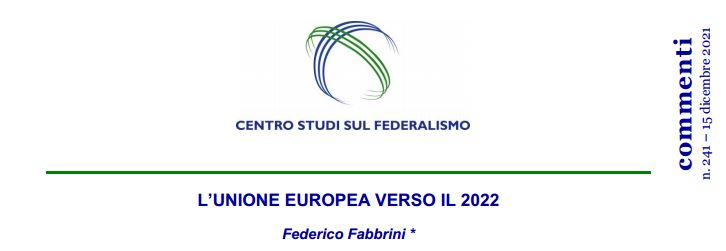
[ ... ] |
 |
|
|
|
|
 |
|
|
|
|
|
 |
Servizio stampa
Parlamento europeo
Ufficio di collegamento in Italia
|
|
|
|
|
|
|
|
Anteprima della sessione del 13-16 dicembre
2021, Strasburgo
|
|
|
|
|
 Alexei
Navalny riceverà il premio Sacharov 2021 Alexei
Navalny riceverà il premio Sacharov 2021
Il politico dell'opposizione russa e attivista
anti-corruzione Alexei Navalny riceverà il
premio Sacharov 2021 nel corso di una cerimonia
mercoledì a mezzogiorno.
......................................................................................................................................................................................................................................................
|
|
 Big
tech: il Parlamento vuole mettere fine alle
pratiche sleali Big
tech: il Parlamento vuole mettere fine alle
pratiche sleali
Il Parlamento voterà la sua posizione sulla
legge sui mercati digitali, che definirà le
norme su ciò che è consentito o meno alle grandi
piattaforme online nell’UE.
......................................................................................................................................................................................................................................................
|
|
 Parità
di genere: maggiore accesso al mercato del
lavoro e salario equo Parità
di genere: maggiore accesso al mercato del
lavoro e salario equo
I deputati dovrebbero chiedere all'UE e ai suoi
Paesi di proporre misure concrete per sostenere
i diritti delle donne e ridurre le
disuguaglianze di genere.
......................................................................................................................................................................................................................................................
|
|
 Dibattito
su Vertice UE di dicembre e risposta UE alla
nuova ondata di COVID-19 Dibattito
su Vertice UE di dicembre e risposta UE alla
nuova ondata di COVID-19
Mercoledì mattina, i deputati terranno un
dibattito con la Commissione e la Presidenza
slovena sul Consiglio europeo del 16-17 dicembre
e la lotta contro la pandemia.
......................................................................................................................................................................................................................................................
|
|
 Anniversario
della dissoluzione dell'URSS Anniversario
della dissoluzione dell'URSS
Trent'anni dopo lo scioglimento dell'Unione
Sovietica, la Plenaria valuterà l’impatto
dell’evento per il futuro della Russia e
dell'Europa.
......................................................................................................................................................................................................................................................
|
|
 Piani
nazionali di ripresa: dibattito con Commissione
e Consiglio Piani
nazionali di ripresa: dibattito con Commissione
e Consiglio
Martedì, i deputati dovrebbero discutere la
conformità dei piani nazionali di ripresa agli
obbiettivi previsti, nonché la situazione nei
Paesi UE che non hanno ancora approvato i loro
piani.
......................................................................................................................................................................................................................................................
|
|
 Appalti
pubblici internazionali: le imprese UE non
devono essere discriminate Appalti
pubblici internazionali: le imprese UE non
devono essere discriminate
I deputati voteranno martedì un nuovo strumento
sugli appalti internazionali per incoraggiare i
paesi terzi ad aprire i loro mercati degli
appalti alle imprese dell'UE.
......................................................................................................................................................................................................................................................
|
|
 Discorso
del presidente del Ghana Nana Akufo-Addo al
Parlamento europeo Discorso
del presidente del Ghana Nana Akufo-Addo al
Parlamento europeo
Martedì 14 dicembre alle 12.00, il Presidente
del Ghana Nana Akufo-Addo si esprimerà in
plenaria nell'emiciclo di Strasburgo in seduta
solenne.
......................................................................................................................................................................................................................................................
|
|
 Combattere
la violenza di genere online: sanzioni e
sostegno alle vittime Combattere
la violenza di genere online: sanzioni e
sostegno alle vittime
......................................................................................................................................................................................................................................................
|
|
 Polonia:
dibattito su ulteriori minacce ai diritti
fondamentali Polonia:
dibattito su ulteriori minacce ai diritti
fondamentali
......................................................................................................................................................................................................................................................
|
|
 Via
libera all'Anno europeo della gioventù nel 2022 Via
libera all'Anno europeo della gioventù nel 2022
......................................................................................................................................................................................................................................................
|
|
 Possibile
invasione russa in Ucraina: dibattito con Josep
Borrell e voto Possibile
invasione russa in Ucraina: dibattito con Josep
Borrell e voto
......................................................................................................................................................................................................................................................
|
|
 I
deputati valutano il divieto d’impiego di
animali selvatici nei circhi I
deputati valutano il divieto d’impiego di
animali selvatici nei circhi
......................................................................................................................................................................................................................................................
|
|
 Aiuti
all’Italia per 800 lavoratori licenziati in
Sardegna Aiuti
all’Italia per 800 lavoratori licenziati in
Sardegna
......................................................................................................................................................................................................................................................
|
|
 Linee
guida per la comunicazione inclusiva Linee
guida per la comunicazione inclusiva
......................................................................................................................................................................................................................................................
|
|
|
|
 |
|
|
|
|
Media freedom battles reach high pitch on Human Rights
Day
By William Horsley, AEJ Media
Freedom Representative, December 10 2021
Human Rights Day is celebrated every year on December 10, the
anniversary of the adoption in 1948 by the United Nations General
Assembly of the Universal Declaration of Human Rights. This year fierce
battles over free speech and press freedom are being played out in full
public view across Europe.
In a rare and highly significant move, on 3 December a vote among the 47
member states of the Council of Europe gave the go-ahead to
“infringement proceedings” against Turkey, one of the most conspicuous
violators of the European Convention on Human Rights with regard to
media freedom. This could ultimately lead to the suspension of Turkey’s
voting rights, or even the country’s expulsion from the Council of
Europe, the continent’s supreme human rights organisation. To avoid that
risk Turkey must release the civil society leader and publisher Osman
Kavala, after the European Court of Human Rights ruled that he was
wrongfully arrested and detained to silence him and that all charges
against him must be dropped.
In a second extraordinary development, on Tuesday this week the Council
of Europe’s Secretary General, Marija Pejcinovic Buric, challenged
Poland over what are seen as the government’s attempts to interfere with
the independence of the country’s judiciary and deny the role of the
European Court of Human Rights as the final arbiter of the Convention.
The clash followed what she called an “unprecedented” judgement by the
country’s Constitutional Court on 24 November.
That judgement said that in certain circumstances Article 6 of the
European Convention (fair trial) is “not compliant with the Polish
Constitution”. Ms Buric wrote to the Polish Foreign Minister asking him
how, in the light of that, Poland’s domestic law would ensure the
country upholds its obligations under the Convention. The issue, she
wrote, concerns Poland’s commitment to ensuring the right of everyone to
a fair trial “by an independent and impartial tribunal” https://rm.coe.int/rau-mfa-poland-sg-article-52-constitutional-court-07-12-2021/1680a4cd03
.
These two events demonstrate the key importance of freedom of expression
and the rule of law – upheld by judicial independence -- in Europe’s
postwar human rights framework, which has been based on the European
Convention on Human Rights since the Convention came into force in 1953.
On Tuesday a leading Europe-based investigative reporting network, the
Organized Crime and Corruption Reporting Project, condemned the
“cascade” of vexatious and groundless lawsuits filed in the past month
against the award-winning Serbian investigative team KRIK and its chief
editor Stevan Dojcinovic https://www.occrp.org/en/40-press-releases/presss-releases/15619-cascade-of-frivolous-lawsuits-endangers-top-serbian-investigative-journalism-outlet-krik
.KRIK’s revelations exposed police collusion in criminal activity and
ties between a Serbian oligarch and the dictator of Belarus, Aleksander
Lukashenko. The attempts to silence KRIK demonstrate why free and
independent journalism is essential to expose high-level crime and
corruption and guard against state censorship and autocracy.
Against this background, the Council of Europe has set out a “roadmap”
which has been formally approved by all its member states to challenge
and reverse what senior officials say is “significant backsliding” away
from their legally binding obligations to fundamental rights.
Journalists’ safety and stronger protections for independent media
against all kinds of interference are at the heart of that commitment.
At a strategic meeting of the Council of Europe’s Media Steering
Committee last week on December 1 to 3, senior Council of Europe
officials announced a series of initiatives over the next two years to
achieve those goals, including a “dedicated campaign” across Europe to
improve conditions for the safety of journalists, a new legal framework
of protection against abusive or vexatious legal threats or SLAPPs (Strategic
Litigation Against Public Participation); and development of fresh
policies and mechanisms to guard against disinformation, political
manipulation of the media, and harmful impacts on media freedom of the
new age of digital convergence and Artificial Intelligence.
The Strasbourg-based Council of Europe, like the European Commission in
Brussels as it prepares to adopt a new Media Freedom Act, promises to
reach out to journalists’ organisations and other civil society groups
to contribute and participate actively in these various plans and
projects. For details see the Steering Committee on Media and
Information Society’s website https://www.coe.int/en/web/freedom-expression/cdmsi
.
This year December 10 is a day for journalists and others to celebrate
for a special reason. Dmitry Muratove, editor of Novaya Gazeta in Russia
and Maria Ressa, founder and chief of Rappler in the Philippines, are
both in Oslo, Norway, in person to receive their joint Nobel Peace Prize.
It is a truly extraordinary tribute to their courage and their
inspiration to others, and a public recognition of the vital importance
of journalism as a public good. The ceremony can be seen live here:
https://www.rappler.com/world/global-affairs/video-maria-ressa-dmitry-muratov-receive-nobel-peace-prize-oslo-norway-december-2021/
|
 |
|
|
|
|
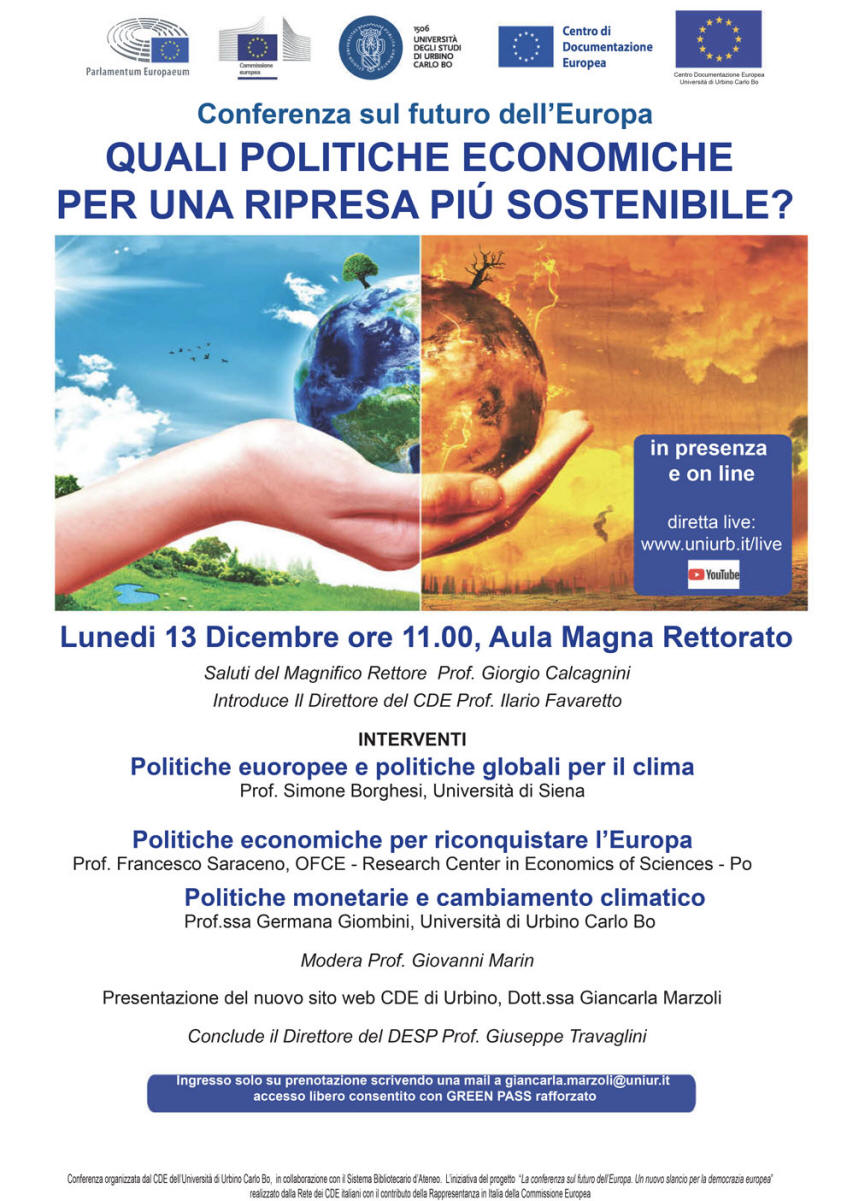 |
 |
|
|
|
|
|
Se non si visualizza correttamente questa e-mail cliccare
qui |
|
|
|
Le difficoltà multilaterali
dell'India, il soldato del futuro e
lo spazio nel Trattato del Quirinale |
|
  |
|
|
|
ARTICOLI |
 |
|
|
|
 |
|
|
|
|
|
Welcome to EURACTIV’s Digital Brief,
your weekly update on all things digital
in the EU. Brought to you by Luca
Bertuzzi (@BertuzLuca)
& Molly Killeen (@_MollyKilleen),
EURACTIV's Digital & Media team. |
|
|
|
|
|
|
“With more and more jobs created by
digital labour platforms, we need to
ensure decent working conditions for all
those deriving their income from such
work”
- European
Commission’s Executive Vice-President
Margrethe Vestager |
|
|
|
|
|
|
Story of the week: The European
Commission has finally shown its hand on
the directive to regulate platform
workers. At the centre of the proposal
is the much-feared rebuttable
presumption, a measure that would
reverse the burden of proof on the
platform, rather than the workers, to
show that they are self-employed. The
Commission estimates up to 4.1 million
people might be reclassified as a result.
Online platforms, as largely expected,
have not welcomed the proposal.
Anticipations of the draft legislation
earlier this week even made the stocks
of Just It, Deliveroo and the likes
plummet. It could have been worse though,
as a leaked proposal from 13 October
contained much broader criteria to
classify a worker as an employee.
The proposal also includes measures on
algorithm management, with some
significant overlaps with the AI Act,
where AI systems applied to employment
are considered high-risk. The platforms
will need to oversee automated systems
and ensure human review of any
significant decision. Interoperability
of ratings was included in an
accompanying communication, which sets
the Commission to support the
development of codes of conduct. Read
more.
Don’t miss: The EU co-legislators
reached an agreement on the roaming
extension for the next 10 years
following some intense negotiations on
Wednesday evening. The agreement on
wholesale cap prices for data was
reached on the Commission proposal of €2
per gigabyte, to gradually decrease
until reaching €1 in 2027.
The agreement crushed the hopes of those
who wished for the price of data to be
better aligned with the actual costs, as
the maximum price per GB in three years’
time will still be higher than the
average commercial prices currently in
use in several EU countries. This is at
a time when 5G and broadband are
increasingly bringing down the cost for
data.
In terms of fair use policy and intra-EU
calls, the Parliament’s two flagship
proposals, MEPs obtained only a mention
in the preamble asking the European
Commission to look into the matter.
Lawmakers at least got a small victory
in that the future revision of the
proposal will need to go through the
ordinary legislative procedure rather
than delegated acts, where they would
have had very little influence. Read
more.
Also this week:
-
DMA faces amendments on killer
acquisitions, interoperability and
default settings in the plenary vote
-
Greens table amendments on the DSA
ahead of IMCO vote
-
New German government determined to
defend encryption, SPD lead
negotiator says
-
AFP teams up with Google to fight
disinformation ahead of presidential
elections
|
|
|
|
|
|
|
|
|
Binding AI. During its final
plenary session, the Council of Europe´s
intergovernmental expert committee on
artificial intelligence (CAHAI) adopted
its position for a legal framework in
artificial intelligence. The proposal
contains a set of legally binding and
non-legally binding standards that will
be the basis for discussing a treaty in
the first half of 2022. The idea is to
establish basic principles and norms
that ensure AI systems respect human
rights, democratic principles and the
rule of law, based on a methodology for
classification risks that is along the
same lines as the EU’s AI Act. |
|
|
|
|
|
| |
|
|
|
A message by Facebook
Facebook is
helping communities in Europe do more.
AgriCam, an Irish-based animal
monitoring company, used Facebook’s apps
and services to deliver up to 70% of
their domestic sales. Learn
more. |
|
|
|
|
|
|
|
|
|
Competition talks. EU competition
chief Margrethe Vestager travelled to
Washington D.C. this week for the launch
of the EU-US
Joint Technology Competition Policy
Dialogue. The dialogue was
established alongside the EU-US Trade
and Technology Council earlier this year
and is set to focus on common challenges
and cooperation when it comes to digital
regulation. In a joint
statement issued at the launch, the
EU and US called for factors such as
network effects, interoperability and
the role of big data to be considered
more consistently as part of digital
investigations. Technological
developments and the digital economy’s
growth have transformed the economic
landscape on both sides of the Atlantic,
the statement notes, necessitating a
rethink of how competition enquiries are
conducted.
Temporary pause. The Commission
has paused
its competition investigation into
US company Nvidia’s acquisition of UK
chip designer ARM, while it gathers more
information. The EU’s antitrust watchdog
had been looking into whether the deal,
the biggest of its kind, would up prices
while stifling innovation. The temporary
halt in the EU doesn’t mean a respite
for Nvidia, however, as the US Federal
Trade Commission is also seeking to
block the deal and the UK’s competition
authority has said it will launch its
own investigation.
The Italian job. Italy’s
competition authority fined
Amazon more than €1.1 billion on
Thursday for abusing its dominant market
position after the company was found to
have been promoting its own logistics
service, “Fulfilment by Amazon”, by
linking it to the access of key benefits
such as Amazon Prime. In addition to the
fines, the watchdog has also imposed
behavioural measures such as increased
visibility for third-party sellers,
compliance with which will be kept track
of by a monitoring trustee. “It seems
clear that it is always easier for those
who enjoy a competitive advantage in
terms of data to shift from a dominant
position in one sector to another,”
commented Rocco Panetta, managing
partner at Panetta Law Firm and IAPP
board member. |
|
|
|
|
|
|
|
|
Encryption defence. The incoming
German government plans to more
stridently defend end-to-end encryption
and resist the introduction of
“backdoors” which allow remote access to
devices, the Social Democrats (SPD)
digital policy expert told EURACTIV.
There have been calls at the EU level
for encryption to be weakened in order
to tackle online child abuse, but
security experts have warned against the
purposeful creation of vulnerabilities,
saying these could be exploited and lead
to violations of users’ privacy. The new
German government will be unanimous in
resisting such calls, the SPD expert
said. Read
more.
Bypass efforts. Documents obtained
by privacy activist Max Schrems’
organisation NOYB reveal that the Irish
Data Protection Commission (DPC) met
with Facebook on 10 occasions to discuss
the platform’s compliance with GDPR in
2018. For the activist, the result was a
legal expedient to ‘bypass’ the GDPR,
collecting user data for target ads on
the grounds of a contract, rather than
explicit consent. The documents also
reveal that the DPC suggested including
these legal provisions for social media
platforms in the European Data
Protection Board Guidelines, an attempt
which was ultimately rejected by fellow
European regulators. The pressure has
been ramping up on the DPC, with the
Irish Times openly
calling for a change of leadership.
Biometric exchanges. The
Commission has proposed an EU
Police Cooperation Code which will
include the automated exchange of data
to identify potential links between
crimes across and beyond the EU.
Included in the data that will be
available for transfer will be facial
images and police records, and the Code
will establish a “central router” to
which Member State databases can be
connected. The proposal has drawn criticism
from digital rights groups, who say
that the expansion of these police
powers have yet to be proven necessary
and proportional, as they are required
to be under EU law.
Data Act feedback. The results for
the public consultation on the Data Act
were published on Monday. Perhaps
unsurprisingly, businesses were the
largest respondents, with 122 trade
associations and 105 companies or
business organisations participating in
a public consultation which elicited
responses from a total of 449
respondents. 100 public authorities and
58 citizens also offered their opinions
of the legislative proposal, which the
Commission says is intended to “create a
fair data economy by ensuring access to
and use of data for legitimate
purposes.” One key takeaway from the
feedback was that most respondents had
experienced issues when trying to get
access to data and therefore see
government action as needed in
business-to-government data sharing. |
|
|
|
|
|
|
|
|
Anti-disinfo alliance. News
agency Agence-France Presse has joined
with Google France to launch an
anti-disinformation programme as the
2022 French presidential elections loom.
The programme will provide training for
its members in skills such as
fact-checking and monitoring. It will
also establish a collaborative platform
on which its membership, composed of
journalists and media organisations, can
exchange information about false and
fact-checked content. The initiative is
similar to measures taken by other
platforms, such as Meta, which recently
announced the extension of its “Facebook
Protect” programme, deployed during the
2020 US election, to countries including
France. Read
more.
Code extended and expanded. The
process of revising the Code of Practice
on Disinformation has been extended as
26 more potential signatories come on
board. The revision, which comes in
response to guidance published by the
Commission following its review of the
original tool, had been set to be
completed before the end of the year but
is now on course to finish by the end of
March 2022. The Commission also
announced the extension of its
coronavirus disinformation monitoring
programme, which had been due to end in
December but will now last an additional
six months. Read
more.
WhatsApp signs up. The Code will
also gain, for the first time, a private
messaging service as a signatory after
Meta announced that WhatsApp would put
its name to the tool. Meeting with
Meta’s vice-president for Global Affairs
and Communications, Nick Clegg, European
Commission Vice-President for Values and
Transparency Věra Jourová said: “the
Commission will work collaboratively
with WhatsApp to determine the
commitments appropriate to a private
messaging service that uses end-to-end
encryption to protect users.” |
|
|
|
|
|
|
|
|
Gentlemen (dis)agreement. The
agreement with rapporteur Andreas Schwab
not to table separate amendments during
next week’s plenary vote was largely
respected by S&D, Renew and ECR. But not
by ECON and ITRE, who used their power
as associated committees to table several
amendments that were excluded during
the negotiations. Schwab’s EPP opposed
all of them, but both committees got
their way with the support of other
political groups.
Holding it together. Amendments
on killer acquisitions, interoperability
and default settings are likely to find
cross-party support among liberal,
social-democrat and green MEPs. To a
certain extent, these proposals are also
very close to positions expressed by
Schwab before. What the leading lawmaker
seems to be concerned about is that
these amendments disrupt the final
agreement, although so far there have
not been noises in this direction.
What’s coming next. If everything
goes as planned, Schwab will face the
French Presidency in the trilogue in
January, without having the support of a
CDU-led government in Berlin. Therefore,
it might be a good idea to stay on good
terms with ECON rapporteur Stéphanie
Yon-Courtin, who will participate in the
talks and is very close to the French
government. Pulling some last-minute
procedural tricks to kill the default
setting amendment might not be in the
best interest of the upcoming
negotiations.
The Left strikes back. The
cease-fire was not violated only by the
committees: The Left presented several
amendments. Three of them were co-signed
with EPP’s Geoffroy Didier, and aim to
extend the scope of the DMA to ancillary
services and to ensure interoperability
of creative content across different
digital platforms. The other leftist
amendments are somewhat extreme, as they
would prevent gatekeepers from
processing personal data for commercial
purposes. Read
more.
Stepping down. the S&D shadow
Evelyne Gebhardt announced on Thursday
she is retiring in February, meaning the
centre-left will need to find another
representative in the negotiations.
Unless an agreement is found in one
month, which seems highly unlikely. |
|
|
|
|
|
|
|
|
Agreement reached. After weeks of
stalling, Christel Schaldemose managed
to reach an agreement, mostly with
support from the centre-right and right.
She had to drop some of her most
controversial proposals such as
extending the liability of online
marketplaces but introduced measures on
dark patterns, deep fakes, and
recommender systems for very large
online platforms (VLOPs). The trade
secret exemption was partially removed,
and cloud services were excluded from
the scope. “The DSA is an important
legislation and we have had many
different opinions and views on how to
improve the Commission proposal, but in
the end, we managed to make ends meet
and create a broad agreement,”
Schaldemose told EURACTIV. Read
more.
Green amendments. The Green group
did not desist and presented together
with The Left a number of amendments
ahead of next week’s IMCO vote.
Amendments include requiring VLOPs to
pay a ‘supervisory fee’ to the
Commission, to consider the environment
in their risk assessment and to
establish a legal representative in each
member state. In one case, on stricter
measures against revenge porn, they also
received the support of Renew. However,
all in all, the deal reached by
Schaldemose seemed to hold. However,
more challenges are to be expected in
the plenary, where new attempts on a ban
on targeted ads via LIBE or a media
exemption via JURI are to be expected. |
|
|
|
|
|
|
|
|
Open source rulebook. The
Commission adopted a new set of Open
Source Software rules this week,
intended to ease the process of sharing
the source code of software when doing
so would be in the interest of society,
companies or public services. As part of
the plans, the Commission’s software
would be collated in an open-source and
publicly accessible repository, with
each contribution being vetted for
security and privacy risks. |
|
|
|
|
|
|
|
|
AI in the newsroom. As in other
sectors, AI is increasingly being
incorporated into the work and working
environments of journalists. Concerns
remain over the technology’s deployment,
however, and while some of these are
applicable to other areas, others are
highly specific to the media, where
trust is already on a downward trend. To
respond to this, the CEO of one company
that is developing AI for use by the
media told EURACTIV an “ethics by
design” approach is needed, meaning
ethical considerations are incorporated
into all stages of the development
process from data set construction to
application. Read
more. |
|
|
|
|
|
|
|
|
Lawsuit hits Meta. Rohingya
refugees from Myanmar have launched a
$150 billion lawsuit against Meta,
accusing the company of failing to act
against anti-Rohingya hate speech online
that led to violence against the
community offline. The suit blames both
the company’s failure to conduct content
moderation sufficiently and Facebook’s
platform design. Facebook has previously
admitted that it was “too slow to
prevent misinformation and hate” in
Myanmar; since then, the company says,
it has taken steps to tackle online
dangers and abuses in the region. Read
more.
Algorithmic dangers. Documents
obtained by the New York Times have shed
more light on the driving
objectives of TikTok’s algorithm,
namely on how the company’s strives to
maximise the amount of time spent on the
app by users. The person behind the leak
of the documents and external critics
worry that this approach could push
viewers towards disturbing content that
might encourage self-harm, for instance.
Amazon blackout. Widespread outages
hit Amazon on Wednesday, taking down
or slowing services such as Prime Video
and Alexa for many users, mainly in the
US. Products including Amazon’s Ring
security cameras and companies that use
the cloud computing component of Amazon
Web Services were also affected by the
outage, which is the third such issue to
hit the company in 2021.
A win for Apple. The Paris
Commercial Court has ruled
against the involvement of the
French digital start-up association
France Digitale in a competition case
launched by the French Ministry of
Economy in 2017. The court found France
Digitale’s participation in the case,
which was strongly opposed by Apple,
inadmissible after it intervened in
support of the French Minister for
Economy, Finance and Recovery and
against what it describes as Apple’s
unfair behaviour when it comes to the
App Store.
Russian regulator under fire. Apple
has launched
legal proceedings against the
Russian competition authority after the
watchdog accused the company of
preventing app developers from informing
App Store customers of alternative
payment options. Apple launched the suit
in October, two months after the Russian
regulator issued a warning to the tech
company over its practices. |
|
|
|
|
|
|
|
Investigating Facebook: a
fractious relationship with
academia (FT)
DeepMind says its new language
model can beat others 25 times
its size (MIT
Technology Review)
|
|
|
|
|
|
|
 |
|
|
|
|
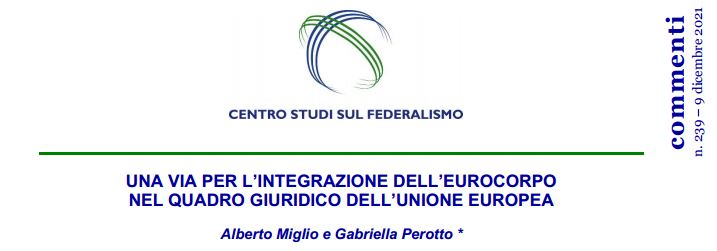
[ ... ] |
 |
|
|
CARE LETTRICI E CARI
LETTORI,
La nostra newsletter settimanale Noi e
il futuro dell'Europa è stata concepita
per contribuire ad una corretta informazione
sull’Unione europea e partecipare al
dibattito sulla riforma dell’Unione a
partire dalla Conferenza sul futuro
dell’Europa.
Come sapete, la Conferenza è stata avviata
il 9 maggio 2021 a Strasburgo e dovrebbe
concludersi nella prossima primavera.
Ecco l’indice della nostra newsletter:
|
|
|
|
 |
|
|
|
|
Se non riesci a leggere questa email, clicca qui
|
|
|
|
|
|
|
newsletter del 10
DICEMBRE 2021 |
|
|
|
|
|
|
|
|
|
|
|
|
|
|
|
|
|
|
|
|
 |
|
|
|
 |
|
|
 |
|
The Istituto Affari Internazionali (IAI) on behalf of
the EU Non-Proliferation and Disarmament Consortium (EUNPDC),
is pleased to invite you to the:
2021 EU Non-Proliferation and Disarmament Conference
|
|
6-7
December 2021
from 6 December at 14.00
to 7 December 16.30 CET

|
Online Conference
Working language:
English, with no translation
The Conference, in its 10th edition, is a major
international event that gathers every year non-
proliferation and disarmament experts from
governmental and non-governmental institutions
worldwide. Over the course of two days, participants
engage in an open discussion, covering issues
related to arms control, disarmament,
non-proliferation of weapons of mass destruction (WMD),
their delivery systems, and small arms and light
weapons (SALWs). The aim of the Conference is to
contribute to the implementation of the EU Global
Strategy by providing recommendations on EU
Non-proliferation and disarmament policies.
The Conference, organised within the framework of
the activities carried out by the EU
Non-Proliferation and Disarmament Consortium is
funded by the European Union.
Follow us:
     
|
|
Istituto Affari Internazionali - Via dei Montecatini, 17 -
00186 - Roma - Rm - Italia - Email: iai@iai.it - Tel:
+39066976831 - P.iva 02126711007
|
|
 |
|
|
|
|
|
Retrouvez tous les jours, directement
dans votre boîte e-mail, l’essentiel des
politiques françaises et européennes –
à lire pendant votre pause café !
Vous voulez savoir ce qui se passe du
côté de nos voisins européens ? N’hésitez
pas à
vous inscrire à
notre autre newsletter Les
Capitales.
Aujourd’hui, au programme : Nucléaire,
fusion TF1-M6, variant Omicron.
|
|
|
|
|
|
|
|
|
Photo : Shutterstock/esfera/nitpicker |
|
|
|
|
|
|
Selon l’avocat général de la CJUE, les
fonds de l’UE ne devraient pas être
conditionnés au respect de l’État de
droit.
Le conseiller juridique de la CJUE a
déclaré que les recours de Budapest et
de Varsovie contre la loi européenne qui
lie les fonds de l’Union au respect des
normes en matière d’État de droit
devaient être rejetés.
Les arguments avancés par la Hongrie et
la Pologne contre le « régime de
conditionnalité » visant à protégeant le
budget de l’UE adopté en décembre
dernier dans le cadre d’un compromis
entre les dirigeants des 27 États
membres, n’ont pas convaincu l’avocat
général Manuel Campos Sánchez-Bordona.
Lire plus… |
|
|
|
|
|
|
Projet de loi pour réformer les outils
de gestion des risques climatiques en
agriculture.
Les ministres de l’Économie, Bruno Le
Maire, et de l’Agriculture, Julien
Denormandie, ont présenté hier un projet
de loi
visant à refonder le système actuel de
gestion des risques climatiques. Le
texte doit
« assurer à tous les agriculteurs une
indemnisation de leurs pertes de récolte
en cas d’aléas climatiques exceptionnels
»,
selon le ministère de l’Agriculture.
«
Les effets du changement climatique
constituent une menace pour notre
agriculture et notre souveraineté »,
a fait savoir Julien Denormandie, en
référence à l’« année noire » que
viennent de vivre de nombreux
agriculteurs français, frappés notamment
par le gel au printemps, mais aussi par
des inondations et sécheresses au cours
de l’année.
Alors que les aléas liés au changement
climatique
« vont se multiplier dans les prochaines
années »
et qu’ils seront
« inévitablement plus nombreux et plus
violents »,
il serait
« indispensable de refonder la gestion
des risques climatiques en agriculture,
en créant un nouveau système universel
basé sur davantage de solidarité
nationale
». |
|
|
|
|
|
|
Frans Timmermans : L'édition génétique
serait « clairement » une action en
faveur du développement durable dans l'agroalimentaire.
Le vice-président de la Commission
européenne, Frans Timmermans, a ajouté
sa voix à la liste croissante de ceux
qui, au sein de l'exécutif européen,
plaident en faveur de l'édition de gènes,
un geste condamné par les militants qui
accusent la Commission d’avoir déjà pris
sa décision sur cette technologie. Lire
plus (en anglais)... |
|
|
|
|
|
|
Le nucléaire, aux portes de la taxonomie
européenne.
A l’occasion de l’ouverture du salon
mondial du nucléaire en France, mardi 30
novembre, la commissaire européenne
Kadri Simson
s’est exprimée
sur le nucléaire, appelant à un «
changement de braquet » sur les
investissements afin de maintenir le
niveau de production d’ici 2050. Le ciel
semble s’éclaircir pour le nucléaire,
qui pourrait, dans des conditions encore
à déterminer, intégrer la taxonomie
européenne sur la finance verte.
Cette décision, attendue de longue date
et qui crée des tensions à Bruxelles,
devrait être entérinée aux alentours du
15 décembre d’après nos informations. A
noter que, le 1er décembre, la
commission sénatoriale française des
affaires économiques s’est alignée avec
la commission des affaires européennes
pour adopter une proposition de
résolution sur l’inclusion de l’énergie
nucléaire dans la taxonomie.
Selon Kadri Simson, « les termes de la
discussion » autour du nucléaire sont
« en train de changer »
en raison de trois facteurs : l’urgence
climatique, l’innovation technologique
et la compétitivité, notamment des
« petits réacteurs modulaires ».
Lire plus… |
|
|
|
|
|
|
Le ministre-président de la Saxe demande
aux mineurs de protester contre la
sortie du charbon en 2030.
Les États allemands producteurs de
charbon sont victimes d’un véritable
traumatisme : en quelques mois, la date
prévue pour l’abandon du charbon est
passée de 2038 à 2030 « idéalement ».
Mais leur transition économique vers l’abandon
de l’industrie du charbon est loin d’être
achevée, estiment certains.
Lire plus... |
|
|
|
|
|
|
Fusion TF1-M6 : le « statu quo n’est pas
possible », selon le directeur du groupe
Bouygues.
Le directeur du groupe Bouygues,
maison-mère de TF1, a défendu le projet
de fusion devant les sénateurs mercredi
(1 décembre), alors que l’avènement d’un
mastodonte de l’audiovisuel suscite de
grandes inquiétudes en matière de
concurrence et de concentration des
médias.
C’est un projet très sensible sur lequel
l’Autorité de la Concurrence (AdlC) et
la future Autorité de régulation de la
communication audiovisuelle (Arcom),
encore connue sous le nom de Conseil
Supérieur de l’Audiovisuel (CSA),
devront se prononcer.
TF1 et M6, les deux premiers groupes de
télévision privés français, ont annoncé
en mai dernier vouloir fusionner pour
peser davantage face aux plateformes
américaines comme Netflix, Amazon Prime
ou encore Disney+ et pour mieux s’adapter
aux nouvelles habitudes de consommation
de l’audiovisuelle en France.
Lire plus… |
|
|
|
|
|
|
Les eurodéputés font pression pour
élargir le champ d’application de la
proposition de chargeur universel.
La première audition au Parlement
européen sur la proposition de
standardisation des chargeurs
électriques a permis de dégager un
consensus entre les partis pour
également inclure les chargeurs sans fil,
les ordinateurs portables, les montres
intelligentes et d’autres appareils
électroniques. Toutefois, la Commission
européenne a maintenu sa position en
invoquant des raisons techniques.
Lire plus… |
|
|
|
|
La France se félicite du lancement des
discussions sur un futur traité mondial
pour prévenir les pandémies.
Le ministère des Affaires étrangères et
le ministère de la Santé ont salué
ensemble la décision de créer un nouveau
texte pour lutter contre les futures
pandémies, lors de la session
extraordinaire de l’Assemblée mondiale
de la santé qui s'est tenue du 29
novembre au 1er décembre.
« En
complément d’un traité sur les pandémies,
la France est favorable à la révision du
Règlement sanitaire international et
souhaite une meilleure mobilisation
politique et financière de la communauté
internationale pour la préparation et la
réponse aux pandémies
», ont également indiqué les ministères
dans un communiqué de presse conjoint.
|
|
|
|
|
|
|
Variant Omicron : espérer le meilleur,
se préparer au pire, selon Ursula von
der Leyen.
Bien que le variant Omicron de la
Covid-19 doive faire l’objet de
recherches plus approfondies, l’Europe
en sait «
suffisamment pour être inquiète
», selon la présidente de la Commission
européenne, Ursula von der Leyen.
Au cours des derniers mois, l’Union
européenne a eu le temps de se préparer
à gérer les crises sanitaires
potentielles à venir. Aujourd’hui, le
nouveau variant Omicron pourrait mettre
ces préparatifs à l’épreuve.
La semaine dernière, l’annonce d’un
nouveau variant, signalé pour la
première fois en Afrique du Sud mercredi
24 novembre, a mis les scientifiques et
les hommes politiques sur le qui-vive.
Des cas d’Omicron ont déjà été signalés
dans plusieurs États membres européens.
Lire plus... |
|
|
|
|
 |
|
|
|
|
|
Se non si visualizza correttamente questa e-mail cliccare
qui |
|
|
|
La tragedia della Manica fra Johnson
e Macron e l'inverno afghano per
Human Rights Watch |
|
  |
|
|
|
Parigi ha ritirato l'invito e il
Regno Unito non ha partecipato al summit
di Calais sull'immigrazione,
ma dopo la tragedia della Manica il
premier britannico Boris Johnson ha
ancora più bisogno di alleati per
affrontare il dossier.
Anche perché questo nuovo fronte
aperto rischia di rivelarsi
l'ennesima crisi
politica che lo danneggia agli occhi
del partito conservatore, ci
racconta da Londra Alessandra Rizzo.
In Afghanistan, denuncia
Human Rights Watch in un rapporto
appena pubblicato, le
promesse di un’amnistia verso
militari, polizia, membri
dell’intelligence del precedente
governo rischiano
di essere una speranza illusoria:
i talebani non mantengono fede agli
impegni, e pure sui diritti
delle donne l'apertura
dimostrata è unicamente di facciata.
Questo e molto altro ancora su AffarInternazionali,
la rivista dello IAI. |
|
ARTICOLI |
 |
|
|
|
 |
|
|
|
|
 |
|
|
Newsletter n.
249
Aiuta l’emeroteca della
Fondazione
|
|
|
|
L’emeroteca della Fondazione è oggi costituita da
425 periodici, spenti e in vita, che riguardano le
strutture organizzative della categoria e le
tematiche sul giornalismo. Il nucleo iniziale è
costituito dalle collezioni dell’Associazione della
Stampa Periodica Italiana (ASPI), che rappresentano
una preziosa rarità e vanno dalla Deutsche
Illustrirte Zeitung (1884-1887) al Don Chisciotte
(1893-1899), alla Illustracion Espanola Americana
(1902-1915), al Mercure de France (1907-1925), ecc.,
cui si sono aggiunte le collezioni delle testate in
possesso dei quattro enti istitutivi nonché le
donazioni pervenute da altre istituzioni o soggetti
privati.
L’emeroteca della Fondazione contiene, tra l’altro,
le collezioni integrali dei periodici che nel corso
degli anni sono stati pubblicati come organi
ufficiali della Federazione della Stampa, delle
singole associazioni regionali, dell’Inpgi,
dell’Ordine professionale e della Casagit.
Chiediamo a tutti i colleghi ed agli amici della
Fondazione di visitare sul nostro sito l’elenco dei
periodici che possediamo al seguente link:
http://www.fondazionemurialdi.it/Documenti/Emeroteca/EMEROTECA%20-%20PERIODICI%20SPENTI%20E%20IN%20CORSO_2.pdf
L’invito che vi rivolgiamo è di aiutarci a
completare le collezioni incomplete, qualora fossero
in vostro possesso numeri mancanti.
La
biblioteca della Fondazione è aperta al pubblico dal
lunedì al venerdì dalle ore 9.00 alle ore 13.00.
Il
regolamento è consultabile al seguente link:
http://www.fondazionemurialdi.it/Documenti/Regolamento_sala_studio.pdf
sito: www.fondazionemurialdi.it |
|
|
 |
|
|
|
YOUNG
PEOPLE ARE MORE OPTIMISTIC TODAY!
According to a new international survey by
UNICEF and Gallup, children
and young people are nearly 50% more likely than
older people to believe that the world is
becoming a better place. They
believe childhood itself has improved, with
overwhelming majorities believing that
healthcare, education, and physical safety are
better for today's children than for their
parents' generation. Despite their feelings of
depression and anxiety experienced during the
Covid-19 pandemic,
the younger generation are more positive and
globally minded than their elders. They see
themselves as global citizens, and more likely
to embrace international cooperation to tackle
news threats and emergencies - whether economic
crises, conflict or disease outbreaks. They
certainly believe that greater changes can be
made by investing more in science and technology,
and strengthening global cooperation with
international institutions.
WILL MILLENNIALS & GEN Z
SAVE THE CINEMAS?
Quite often, it has been said that Millennials
and Gen Z invented 'Netflix
and chill'. It is not a big surprise as
they actually grew up with digital streaming and
binge-watching. Before
the pandemic, about 27% of Millennials reported
going to the movie theaters monthly while only
19% of Gen Z attended cinemas on a monthly basis. Since
the pandemic, these numbers have dropped sharply
to 8% and this is certainly not due to health
concerns. About
60% of the young audiences admitted that they
would rather watch a comedy or sci-fi movie from
their couch at home than go to the cinema,
after experiencing this option during the
pandemic. There is not much evidence that
younger cohorts have become particularly
disdainful of the theatrical experience, but
rather it has become a comfortable habit. |
|
YOUTH PERSPECTIVES | CLIMATE CHANGE &
ENVIRONMENT
|
|
|
On November 13, the COP26 came to an end with the
Glasgow Climate Pact formally adopted but it
fell short of taking direct climate action. This
month, we bring you perspectives and inspiring
stories about young people who are demanding
real actions from governments on global heating
and the ecological crisis.
ONLY
ADULTS IN THE ROOM
The
COP26 closed with a final agreement officially
recognizing, for the first time, that fossil
fuels and coal are the main drivers of climate
change. The agreement represents the commitment
of the countries that largely caused climate
change to financially support those who are
suffering the most from it. Although
it was hoped that youth would be heard by world
leaders on this topic, the agreement differs
significantly from the COY16 Global Youth
Position Statement, signed by more than 40,000
young climate activists. In
this document, they demanded an intersectional
approach to environmental governance, a more
ambitious commitment from the Global North to
support countries in the Global South and direct
measures to penalize the use of fossil fuels. In
support of these demands, more than 100,000
young people demonstrated in the streets of
Glasgow during the COP26 Summit asking for real
actions against the climate crisis.
THIS IS
ONLY ABOUT HUMAN LIVES!
About 307,000 people died prematurely due to
exposure to fine particulate matter pollution in
the European Union in 2019. The
European Environment Agency (EEA) has recently
published a study estimating that 58% of such
premature deaths could have been avoided if
all EU Member States had reached the World
Health Organization (WHO)’s new air quality
guideline level of 5 µg/m3. The
study also shows the differences in years of
life lost between EU Member States. For example,
in Sweden, 258 years of life were lost per
100,000 inhabitants while in Bulgaria, 1,606
years of life were lost per 100,000 inhabitants
due to fine particulate matter pollution. Every
year, exposure to air pollution is estimated to
cause 7 million premature deaths worldwide
according to WHO. Let’s think about it! |
|
|
YOUNG PERSON OF THE MONTH | KALUKI PAUL
MUTUKU |
|
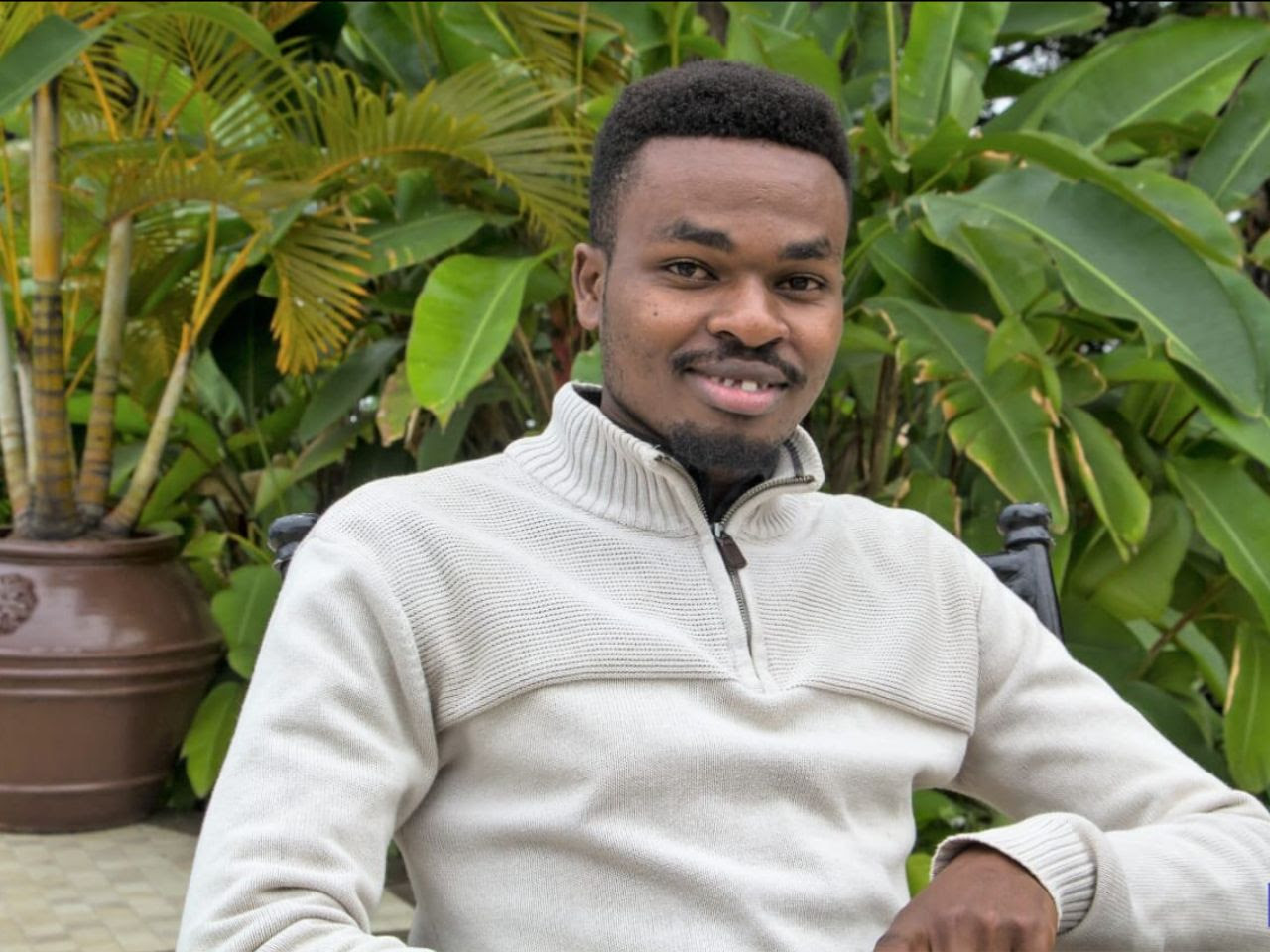 |
|
Copyright: Youth4Nature
|
|
Kaluki Paul Mutuku is a 28 years-old climate
advocate and environmental activist. He grew
up in Machakos, a rural community in the
Kenyan countryside, where
he witnessed the gradual decline of his
village’s landscapes and progressive water
scarcity. He
pursued his studies in Environmental
Conservation and Natural Resources
Management at the University of Nairobi
when he founded Green Treasurers
Farms (GTF) community. GTF
helps young girls and boys become the
new generation of ‘green entrepreneurs'. The
community aims to teach them about
sustainable methods to ensure water
availability, grow trees and reduce the
waste of environmental resources to zero.
Today, Kaluki is also the Africa
Regional Director at Youth4Nature, a
global youth-led organisation empowering
youth to lead with solutions to climate
crises. As Co-Founder and Managing
Director at Kenya Environmental Action
Network, Kaluki leads KEAN Bustani
Gardens Program to improve education
about healthy food systems, environmental
conservation and sustainability in Kenyan
schools and communities.
|
|
|
THINKYOUNG STANDS
AGAINST GENDER-BASED VIOLENCE:
INSTAGRAM LIVE WITH ANTONELLA CRICHIGNO
For this year’s #16Days of
Activism Against Gender-Based Violence,
we organized the second Instagram LIVE for
the ThinkYoung
Live Talk series.
On Friday 26, we virtually met Antonella
Crichigno, a young feminist
activist and member of Young Feminist Europe.
We discussed the different forms of
gender-based violence, the possible
solutions to this global problem and how the
younger generation can take an active role
in this fight for a more equal world.
If you missed the Live, follow us on
Instagram and click here to watch it now!
|
|
|
REGISTRATION IS OPEN
FOR THE NAIROBI CODING SCHOOL!
In partnership with Boeing, we will host
the 12th
edition of ThinkYoung Coding School in
Nairobi. On January
29/30 & February 5/6, students
aged between 13 and 19 years old will
attend lessons in computer programming
with coding experts. They will
maximize their coding skills with activities
related to the aviation industry,
robotics and drones. The
programme is 100% free of charge and
will provide students with a unique
experience of a school characterised by
innovative approaches to STEM.
Check out our website and discover how
much fun #coding is!
|
|
|
ONE
YOUTH AMBASSADOR PROGRAMME 2022
ONE is looking for 60 Youth Ambassadors of
any European nationality, 16-30 years old,
living in Belgium for 2022 - Applications
are still open!
Don’t miss the opportunity to get involved
in the field of international solidarity and
fight against extreme poverty and
preventable diseases!
Please fill in the form!
|
|
|
|
 |
|
|
|
|
CARE LETTRICI E CARI
LETTORI,
La nostra newsletter settimanale Noi e
il futuro dell'Europa è stata concepita
per contribuire ad una corretta informazione
sull’Unione europea e partecipare al
dibattito sulla riforma dell’Unione a
partire dalla Conferenza sul futuro
dell’Europa.
Come sapete, la Conferenza è stata avviata
il 9 maggio 2021 a Strasburgo e dovrebbe
concludersi nella prossima primavera.
Ecco l’indice della nostra newsletter:
|
|
|
|
 |
|
|
|
|
Una
candela per i diritti umani, il 60° compleanno di Amnesty International
a Roma, Fiera della piccola e media editoria Piùlibri piùliberi
|
|
Sedici grandi autrici e autori che negli
anni hanno mostrato particolare vicinanza ai temi dei diritti umani
firmano altrettanti testi inediti in occasione del 60° compleanno di
Amnesty International. Ognuno di loro racconta il significato del lavoro
di Amnesty International per il proprio vissuto e la propria crescita
personale, offrendo alle lettrici e ai lettori uno sguardo sul futuro
dei diritti umani, per mantenere sempre accesa la luce della speranza.
I vari contributi sono raccolti in un’antologia collettiva dal titolo
Sessant’anni dalla parte dei diritti umani, e ogni contributo spiega
il significato del lavoro di Amnesty International e offre alle lettrici
e ai lettori uno sguardo sul futuro dei diritti umani attraverso
approfondimenti sui temi che autrici e autori sentono particolarmente
vicini.
Il libro viene presentato a Roma,
nell’ambito della Fiera della piccola e media editoria Piùlibri
piùliberi che si tiene presso il Centro Congressi La Nuvola (viale
Asia), sabato 5 dicembre alle 12,30 in Sala Nettuno. Intervengono le
autrici e gli autori, tra cui Riccardo Noury, Angela Caponnetto,
Caterina Bonvicini e Ascanio Celestini.
Hanno partecipato alla creazione di
Sessant’anni dalla parte dei diritti umani, in ordine alfabetico:
Caterina Bonvicini, Pino Cacucci, Annalisa Camilli, Angela Caponnetto,
Paola Caridi, Giuseppe Catozzella, Ascanio Celestini, Giancarlo De
Cataldo, Alessio Forgione, Fabio Geda, Riccardo Noury, Moni Ovadia,
Roberto Saviano, Elena Stancanelli, Domenico Starnone, Gian Antonio
Stella.
Il libro:
Titolo: Sessant’anni dalla parte dei diritti umani
Autore: Amnesty International
(€ 13,00 – pag. 112)
L’Autore
Amnesty International è un’organizzazione non governativa
indipendente, una comunità globale di difensori dei diritti umani che si
riconosce nei princìpi della solidarietà internazionale. L’associazione
è stata fondata nel 1961 dall’avvocato inglese Peter Benenson, che
lanciò una campagna per l’amnistia dei prigionieri di coscienza. La
visione di Amnesty International è quella di un mondo in cui a ogni
persona siano riconosciuti tutti i diritti umani sanciti dalla
Dichiarazione universale dei diritti umani e da altri atti sulla
protezione internazionale dei diritti umani. Per maggiori informazioni:
www.amnesty.it
Per informazioni:
Infinito edizioni: 059/573079 - 331/2182322
|
 |
|
|
|
|
|
|
|
|
|
|
|
|
|
|
|
|
|
|
|
|
|
|
|
|
|
|
|
|
|
|
|
|
|
|









.jpg)

.jpg)

.jpg)
.jpg)


.jpg)
















.png)
.png)


















